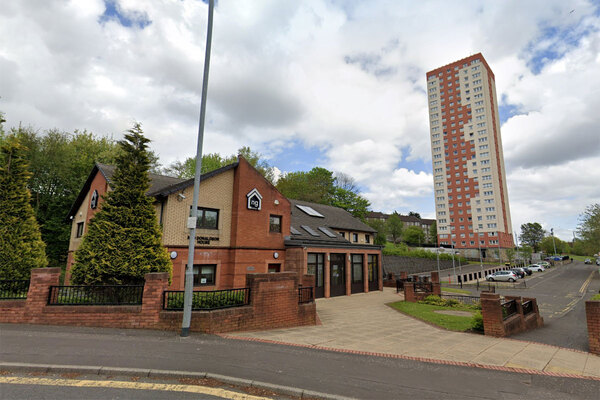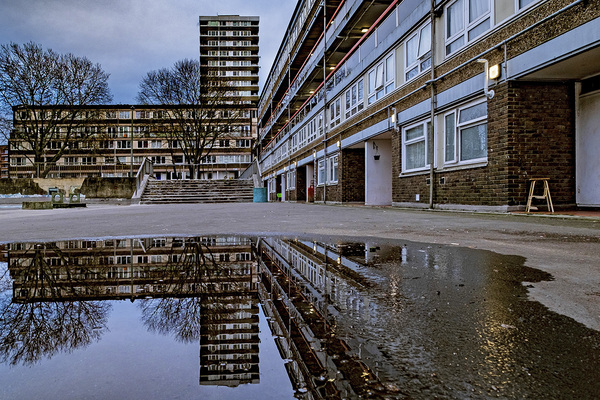You are viewing 1 of your 1 free articles
 Jules Birch
Jules BirchChance of a lifetime
 Jules Birch
Jules BirchMPs will get the chance to back major housing reforms including new significant exemptions to the bedroom tax later this year. Will they take it?
Andrew George, the Liberal Democrat MP for St Ives, has what he describes as ‘the chance of a lifetime’ to change things through legislation after coming first in the ballot for private member’s bills. Talking to him yesterday gave me a fascinating but slightly depressing insight into how the system – and party politics – work.
He consulted his constituents on a shortlist of options including housing, a Cornish Assembly and health care standards and after more than 2,000 comments has decided to plump for an Affordable Homes Bill with four key elements:
- Extension of Help to Buy or a new Affordable Homes Investment Bank to underpin the ‘intermediate’ market (shared equity/shared ownership/mutual housing) to construct a new lower rung on the housing ladder for those who cannot afford full ownership.
- New exemptions to the bedroom tax for anyone who has lived at an address for more than three years or who lives in a home with disabled adaptations
- A new Use Class for ‘non-permanent residential use’ to empower local planning authorities to control the number of second homes in their area.
- Enhanced powers of compulsory purchase for local authorities where developers land bank development sites or fail to use sites for which planning permission has been granted but development has not advanced or where need for affordable homes cannot be met on ‘exception’ sites through community land auctions/trusts.
To give a bit of context, Andrew George is my MP so I know he has a longstanding interest in affordable homes and a particular local one in the pernicious impact of second homes. More recently he’s been named the most rebellious Liberal Democrat MP of this parliament and has voted against the government on issues such as the bedroom tax, NHS reform and tuition fees.
All four of his proposals have the potential to attract cross-party support but there could be issues with all of them too. This is the starting point but not necessarily what the final Bill will look like since he may have to narrow it down to get majority support.
On intermediate housing, he argues that the market has not taken off because lenders are ‘iffy’ about it and people who buy a share struggle to sell. ‘I can’t see why anyone would object to it,’ he told me. ‘The Treasury might be worried about the budgetary implications but the principles can’t be objected to.’ Shared ownership sceptics may disagree but it could be a big improvement to Help to Buy.
Private member’s bills can only amend, rather than repeal, legislation, which is why he’s gone for exemptions to the bedroom tax. ‘The thing I’ve found offensive about it is the implication that because you’re poor you’re less entitled to a stable family home,’ he says. ‘This would significantly neutralise [the bedroom tax] and carve out a large number of cases.’ By my reckoning, his proposals would exempt the majority of those affected. Some 83 per cent of social tenants have lived in their home for more than three years (though that includes pensioners and the proportion of working age will be lower) and some newer tenants will be in specially adapted homes.
On second homes, his proposal could get support from other rural MPs but it does go against the grain of Tory deregulation (as I blogged earlier this week, the Deregulation Bill will liberalise short-term rentals in London). George says he has campaigned on the issue for years but been turned down by housing ministers under both the Conservatives and Labour.
Finally, his proposals on land banking chime with Labour policy but something similar has been proposed by Boris Johnson in London.
So what next? The reason that topping the private member’s bill ballot is the equivalent of winning the lottery for a backbench MP is that parliamentary time is very limited and the winner has the best chance of seeing their Bill become law. It’s not a guarantee though. The last MP who won the ballot and was successful was Labour’s Brian Iddon before the last election with a Bill to protect the rights of tenants of repossessed landlords and he was a member of the largest party and had government backing. MPs promoting Bills have to be prepared to negotiate to win support.
George had to strike a balance between proposing something small to maximise support and something bigger with a higher risk of not getting it through. ‘I wasn’t going to run with something tame and anodyne,’ he says. ‘This is once in a lifetime chance to advance a cause rather than tinker at the edges.’
However, while all of us might hope that law-making at Westminster is a rational process in which proposals are debated and enacted on their merits, the reality is not quite like that. Party politics inevitably intrudes.
Take the bedroom tax, for example. My guess is that it would not survive a genuinely free vote in the Commons in its current form if the right compromise could be found. The all-party Work and Pensions Committee recommended significant exemptions and changes in a report in April. Some Lib Dems and even a few Conservatives have voted against it or abstained at various points.
However, with ministers and their aides expected to vote for government policy or resign, there have never been enough of them to succeed. Labour, meanwhile, has used opposition day debates to call for repeal of the bedroom tax but seemed more intent on pinning the blame on the Tories and Lib Dems at the next election than securing concessions in the meantime.
Too often then the parliamentary system and tribal party politics have seemed to trump changes to what most MPs know is a bad policy. Will it be any different this time? The early signs are not promising. ‘I’ve spoken to the Labour leads and they have indicated that they may not go for my bedroom tax change,’ says George.
From the Conservative side of the House, meanwhile, he’s had dark threats from Eurosceptics with their own agenda. ‘The Tories have threatened to talk my Bill out unless I allow the European Referendum Bill to get in first,’ he says. ‘The only way to prevent that is to get 100 people there on the day and I may struggle to do that.’
Andrew George is currently drafting his Bill and is prepared to narrow it down to the elements that will attract enough votes to pass. Can the Lib Dem rebel succeed? The first debate in the Commons is set for September 5. Watch this space.








